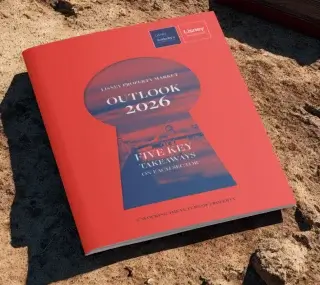read also
 Iceland’s Four-Day Workweek Five Years On
Iceland’s Four-Day Workweek Five Years On
 Mortgage Approvals in Ireland Slump Sharply in January
Mortgage Approvals in Ireland Slump Sharply in January
 Lisney Property Market Outlook: Irish Property Market Poised for Steady Growth in 2026
Lisney Property Market Outlook: Irish Property Market Poised for Steady Growth in 2026
 Inflation in Romania Slows to 9.6% but Remains Above Forecast
Inflation in Romania Slows to 9.6% but Remains Above Forecast
 Riots in Mexico Disrupt Air Links to Resort Destinations
Riots in Mexico Disrupt Air Links to Resort Destinations
 UK House Prices Stabilise After 2025 Slowdown
UK House Prices Stabilise After 2025 Slowdown
Cyprus Aims to Grant 150 Startup Visas to Non-EU Entrepreneurs by End of 2026

Cyprus has set an ambitious goal of issuing 150 startup visas to talented entrepreneurs from non-EU and non-EEA countries by the end of 2026, Deputy Minister of Research, Innovation, and Digital Policy Nicodemos Damianou announced, as reported by Schengen News.
The program aims to create new jobs, foster innovation, and strengthen Cyprus' entrepreneurial ecosystem. Part of the Vision 2035 initiative, Cyprus aspires to be one of the best global destinations to live, work, and do business. Currently, it ranks among the Top 45 global startup ecosystems according to the StartupBlink Index.
Program Features
The startup visa scheme allows individual entrepreneurs or teams from third countries to live and work in Cyprus for up to three years, with potential extensions and eligibility for permanent residency. High-potential startups can establish and operate under this program.
Incentives include significant tax benefits, such as a 50% income tax exemption for individuals earning over €55,000 annually, valid for 17 years.
In December 2024, the Cypriot Council of Ministers approved changes to the startup visa scheme, extending the residency period from two to three years and doubling the renewal term to two years.
Deputy Minister Damianou emphasized that the revisions aim to attract dynamic startups, diversify the country’s economic model, and promote job creation. These changes took effect in January 2025.
Last year, Cyprus introduced the "Golden Knowledge" initiative to attract IT professionals, emphasizing its focus on technological transformation. Damianou clarified that this program is unrelated to the controversial Golden Passport scheme, which faced criticism from the EU.
Cyprus’ initiative is a bold move to develop an innovation-driven economy. However, challenges persist, including reliance on traditional sectors like tourism and real estate, which also draw international investments.
Comparatively, Georgia has demonstrated significant success in similar initiatives by modernizing infrastructure and streamlining visa processes to attract digital nomads and startups. Georgia’s approach focuses on reducing bureaucracy and integrating startups into its economic framework.
For Cyprus, overcoming structural barriers such as limited resources and the need for substantial capital inflow will be key. The success of the program hinges on establishing a stable legal framework, providing long-term support for participants, and maintaining competitive tax policies.


